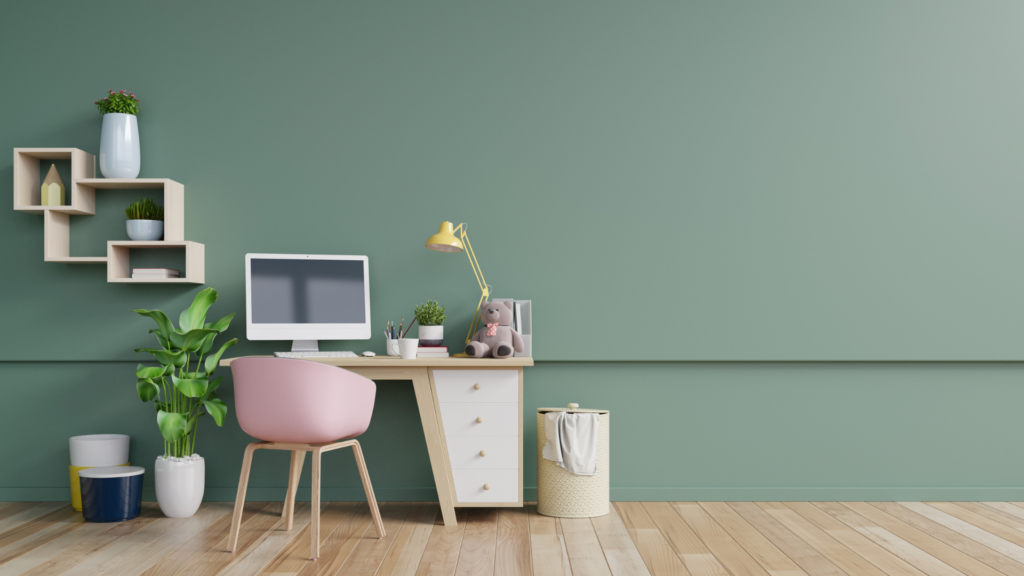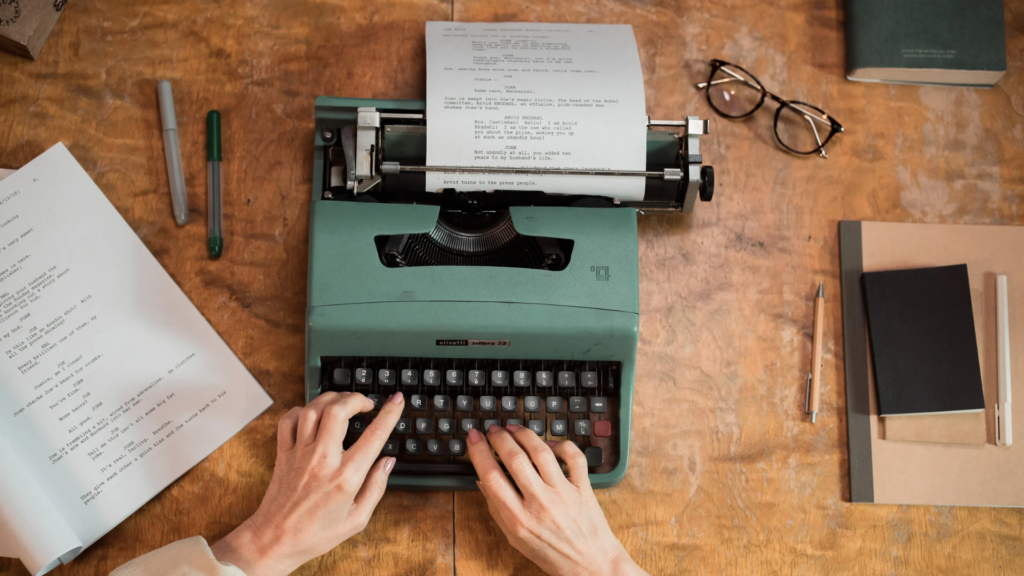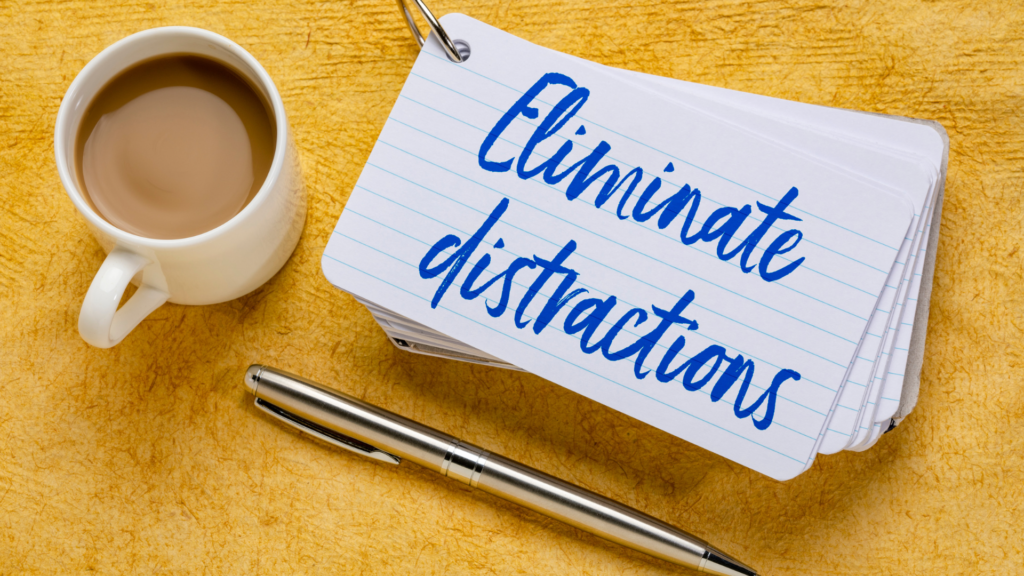
Every writer knows how impactful having a dedicated writing space can be to getting in the zone. A place where you can truly immerse yourself into the world you created through your book. This is your sanctuary where magic happens! And this isn’t just for authors, this goes for budding bloggers, students working on an important essay, or anyone else working on a writing project. Having a well-designed writing space can significantly impact your quality of work.
Now this space doesn’t need to be some huge elaborate office. It can be just a simple area of your choosing that feels right to you. I personally picked a small corner in my house where I made my own space and that’s been working perfectly for me.
Now let’s dive in and explore the essential elements to consider when creating the perfect writing space that suits your needs and fuels your creativity.

1. Choose the Right Location:
The first step in creating your perfect writing space is finding the right location. Really take the time to pick out a spot where you feel comfortable, focused, and inspired. Consider these factors when choosing your perfect spot:
– Natural Light: Look for a space that allows plenty of natural light. Sunlight can boost your mood and energy, making it easier to stay motivated and creative.
– Quiet Environment: Ensure your writing space is as free from distractions as possible. If you have a dedicated room, that’s ideal. If not, consider noise-canceling headphones or a quiet corner in your home.
– Accessibility: Make sure your writing space is easily accessible, so you don’t have to deal with unnecessary obstacles when you’re ready to write.

2. Ergonomic Comfort:
Writers typically write for hours on end and comfort is the key in helping you remain productive . Ergonomics is important because when you’re sitting for long periods of time and your body is stressed by an awkward posture, extreme temperature, or repeated movement your musculoskeletal system is affected. Consider these ergonomic factors:
– A Comfortable Chair: Invest in a good-quality, supportive chair that will keep you comfortable during long writing sessions.
– An Adjustable Desk: If possible, opt for a desk that can be adjusted to your ideal height to prevent strain on your wrists and back.
– Proper Lighting: Ensure that your writing space is well-lit to prevent eye strain. A desk lamp with adjustable brightness can be a great addition.

3. Personalize Your Space:
Your writing space should be a reflection of your personality and really inspire your creativity. Remember this is where you’ll spend hours upon hours crafting creative endeavors so you want to make this space somewhere that will help you zone in when you need to. Here are some tips on adding a personal touch to your workspace:
– Decorate to Inspire: Hang artwork, quotes, or items that motivate you. Personal touches can help you stay inspired.
– Organize Thoughtfully: Keep your space clutter-free and organized. Invest in storage solutions like shelves, drawers, or organizers to help maintain a tidy workspace.
– Include Greenery: Plants not only add a touch of nature to your space but can also improve air quality and create a calming atmosphere.

4. Essential Tools and Supplies:
Make sure you have all of the writing tools you use at your fingertips so you won’t need to get up and pull yourself out of your writing. Luckily being a writer doesn’t require a lot of tools. At the bare minimum a pen and paper. A few things you may want in your space are:
– A Reliable Computer or Laptop: Ensure your writing device is reliable and up-to-date.
– High-speed Internet: A stable internet connection is vital for research and staying connected with your writing community.
– Stationery and Supplies: Stock up on pens, notebooks, sticky notes, and other writing supplies you frequently use.

5. Minimize Distractions:
This one might be hard especially if you have kids but find a space where you can minimize distractions as much as possible. The less you’re pulled away from writing the more productive you’ll be.
– Use Website Blockers: If you find yourself easily distracted by the internet, use website blockers to limit access to social media or other time-wasting sites during your writing time.
– Set Boundaries: Communicate with family members or housemates about your writing schedule and request uninterrupted time during your work hours.

6. Add something to your space that signals it is time to write:
This is a psychological tactic called Pavlovian conditioning. According to Science Direct, Pavlovian conditioning refers to the behavioral and physiological changes brought about by experiencing a predictive relationship between a neutral stimulus and a consequent biologically significant event.
- If you’re a scent person try finding a candle you love that you only light when it’s time to write and never anytime else. This will tell your brain it’s time to write.
- If taste is more your thing try this with tea or coffee and drink out of a mug that you have specifically for writing purposes. Once you start drinking out of that mug your brain will think it’s time to be productive.
Now how exactly does this help boost creativity you ask? Well, there’s a few reasons.
- Minimizes distractions
Distractions can take you completely out of a writing flow and that can turn into writer’s block. It signals your brain that it’s time to focus and be creative.
- Psychological Association
Over time, your brain will associate certain areas with a certain task. So if you consistently use the same writing space, your brain will learn that that is a place to write and will get into the creative zone faster.
- An Inspiring Environment:
Having a personalized space with decor, artwork, or quotes that you picked out can really enhance your creative flow. Remember it’s all mental so immersing yourself in a well-designed space can really set the mood for a productive writing experience.
Okay, I hope you all take the time to create your perfect writing space! Until next time happy writing!
